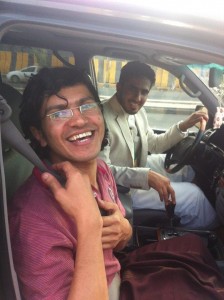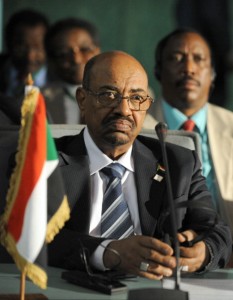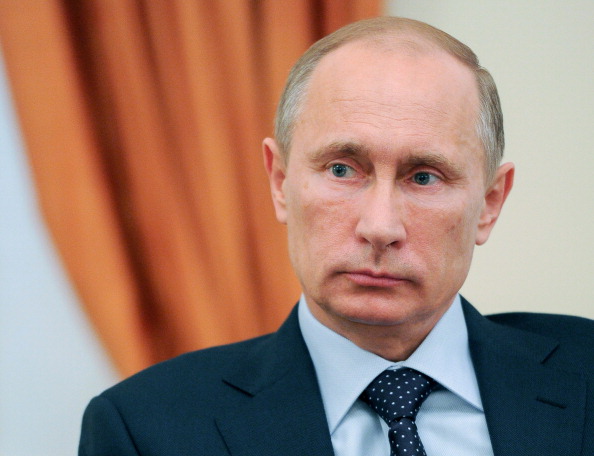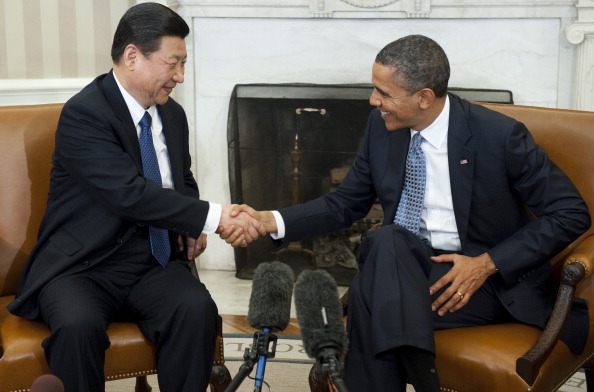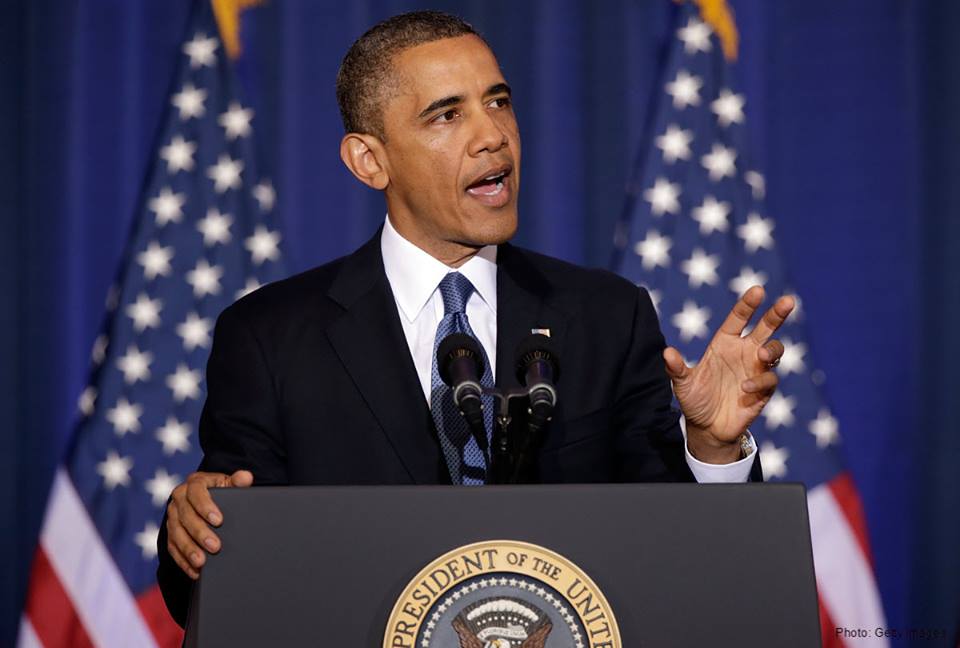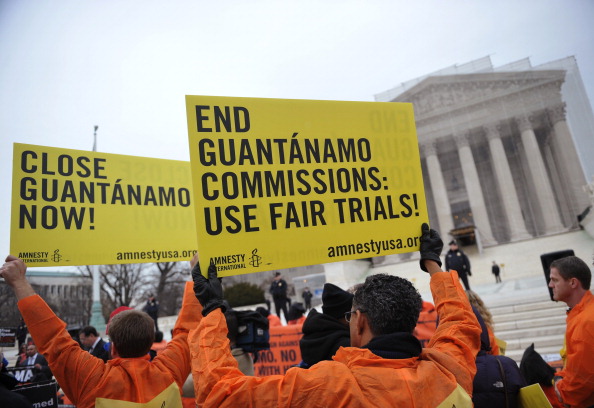
Demonstrators take part in a rally to call for the closing of the Guantanamo Bay detention center (Photo Credit: Mandel Ngan/AFP/Getty Images).
By Saira Khan, Intern at Amnesty International USA’s Security & Human Rights Program
I was born and raised in New York. My mother is originally from Pakistan and my father is from India. My parents and I are Muslim. From a young age, I had the impression that most Americans did not know much about my culture or religion.
During the September 11 attacks, I was in fifth grade. I can distinctly remember a classmate calling me a terrorist in the following days. While I knew that he did not realize the gravity of his accusations, I also understood that his words represented a new perspective held by many Americans regarding Muslims. As I have gotten older, this stereotypical outlook has been reinforced through my personal experiences.
Many Americans assume that all of the prisoners at Guantanamo must be guilty of something, and therefore are deserving of the conditions in which they live. The reality is that most detainees in Guantanamo Bay detention facility have never been charged, and none fairly tried. Yet they are all still being punished. I’m concerned that the passive acceptance of Guantanamo in our country is a manifestation of latent discrimination toward Muslims. This is a travesty, especially for America, the supposed “land of the free.”
